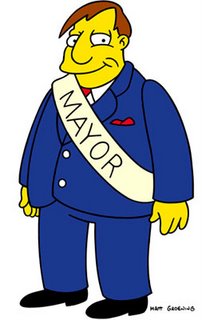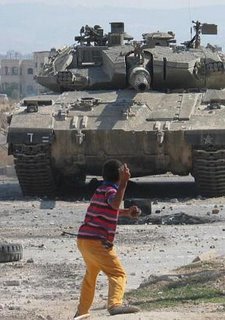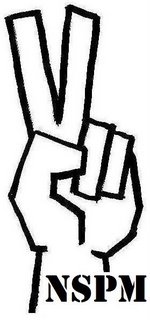Representin'
 In my last post I discussed some of the flaws of trade unionism, with particular emphasis on the local government pensions dispute. I suggested in conclusion that many of relevant issues were touched upon in this article by Simon Tormey (who I'll confess from the word go was one of my lecturers) and promised to examine some of its implications which is more or less how we ended up here. Tormey's article was written in response to a piece by Hilary Wainwright advocating the coalescence of assorted social movements around a new lefty party. As such, Tormey's article focuses primarily on political parties. Nevertheless, many of the points it makes generalise and applying them to trade unions is, I suggest, a worthwhile task.
In my last post I discussed some of the flaws of trade unionism, with particular emphasis on the local government pensions dispute. I suggested in conclusion that many of relevant issues were touched upon in this article by Simon Tormey (who I'll confess from the word go was one of my lecturers) and promised to examine some of its implications which is more or less how we ended up here. Tormey's article was written in response to a piece by Hilary Wainwright advocating the coalescence of assorted social movements around a new lefty party. As such, Tormey's article focuses primarily on political parties. Nevertheless, many of the points it makes generalise and applying them to trade unions is, I suggest, a worthwhile task.Tormey asserts:
Collective action has, perversely become individualised. Yes, we want to join with others to make our voices heard – no we don’t want those voices to crystallise into a fixed or static programme which then ‘represents’ us or our views. We want to act, but we want our actions to be distinct, to somehow remain our own. We want our voices heard – not drowned out by the megaphone politics of the politicians.The theoryheads amongst you may notice the hints at Deleuzo-Guattarian philosophy with its rejection of representation and focus on the assertion of "univocity" and difference, but the thrust of the argument ought not to be lost on the rest of us.
Tormey's argument strikes me as particularly attractive. It explains the ongoing demise of political parties of all stripes and dovetails nicely with my own distaste for party lines or political platforms. One is entitled to ask however, exactly how such a politics might manifest itself and how it might exert influence on the prevailing order. It is axiomatic that atomised individuals cannot confront the forces arrayed against them (army, police etc.) alone. Unity - as any lefty can tell you - is strength. How then is this unity to be achieved without representation, without crystallisation, without trade unionists?
Tormey notes, "To speak of an alternative in the singular is already to miss the point." He points to an explosion of "unofficial or DIY boycotts" which enable people to act, rather than have others act for them. I think this diversity is potentially a great strength and I am not here seeking to articulate a one-size fits all solution. Indeed, I do not offer a definitive solution. Instead I wish to point to a few methods of organising, drawn from history and my own experience, which I believe may provide some inspiration. Continuing today's theme, I'm going to focus predominantly on labour struggles.
The Confederación Nacional del Trabajo (National Labour Confederation, CNT) is a Spanish anarcho-syndicalist union which reached its nadir during the Spanish Civil War. The CNT was established intially in opposition to the socialist Union General de los Trabajadores (General Union of Workers, UGT) and made some effort to distinguish itself from its more conventional contemporaries as Wikipedia explains:
The national confederation was split into smaller regional ones, which were again broken down into smaller trade unions. Despite this many-tiered structure bureaucracy was consciously avoided. Initiatives for decisions came largely from the individual unions. There were no paid officials; all positions were staffed by common workers. Decisions made by the national delegations did not have to be followed.
 Even today the CNT refuses to participate in industrial committees which consist of elected representatives of the workers who participate in negotiations on collective bargaining agreements. The upshot of which is that the organisation cannot legally call strikes, although quite rightly this doesn't seem to stop them. As this interview with a CNT member shows, they seem to place great faith in the collective action of workers and have little interest in negotiations which the interviewee suggests "do not depend on anything other than force."
Even today the CNT refuses to participate in industrial committees which consist of elected representatives of the workers who participate in negotiations on collective bargaining agreements. The upshot of which is that the organisation cannot legally call strikes, although quite rightly this doesn't seem to stop them. As this interview with a CNT member shows, they seem to place great faith in the collective action of workers and have little interest in negotiations which the interviewee suggests "do not depend on anything other than force."None of this is to suggest that the CNT model could or should be adopted wholesale in the UK. It is worth recalling that during the civil war the CNT did participate in the government, with several prominent members taking positions as ministers a move which remains controversial amongst anarchists. Furthermore, the CNT is a fraction of its former size. In 1979, shortly after being decriminalised following the demise of General Franco, the organisation demonstrated its commitment to leftist principles by splitting. This was motivated largely by disagreement over whether the union should participate in elecciones sindicales to elect workers' representatives, with those who supported such a moving going on to become the Confederación General del Trabajo (General Labour Confederation, CGT) which is nowdays the larger of the two.
It is worth pointing out that there is already a British organisation organised along the lines of the CNT, but unfortunately its unfluence seems to be virtually nonexistent. The Solidarity Federation is the British affiliate of the International Workers Association/Associación Internacional de los Trabajadores (IWA/AIT) which the CNT innaugurated and remains the most prominent member of. SolFed even has a Public Service Workers Network, which one can envisage intervening in the current pensions struggle, but its membership appears to be small and diffuse. I certainly wouldn't expect them to be offered places in the Cabinet anytime soon.
If we apply Tormey's analysis it is arguable that SolFed's minimal influence is at least partly attributable to the fact that it carries almost as much ideological baggage as the average lefty party. It has in short, crystallised into a fixed or static programme, in exactly the manner Tormey suggests we should avoid. While my Spanish is worse than rusty, I would hazard a guess that the CNT is plagued by similar problems. This shouldn't be all that surprising, anarcho-syndicalism was seen by its exponents, not only as a more militant form of trade unionism, but rather as a - even the - method for bringing about a revolution. Like Marxism it emerged in a particular historical context, but continues to be espoused as a response to the very different situation which we face today in an era of post-Fordist capitalism (at least in the Global North).
Rather than attempting to recreate the CNT I wonder if it wouldn't be possible to conceive of a non-ideological entity filling the same role. Many will balk at this, suggesting that ideological unity is key, but I disagree. One only need to look at the proliferation of lefty sects as factions split over matters of seemingly little significance. In the course of my own activism, I have had some experience with groups which try to dispense with an ideological "line" which I think has served them well. During my time at university, I was a member (and president for two years) of Nottingham Student Peace Movement (NSPM).
 As you might expect given the name, NSPM was a movement made up with students concerned about the "War on Terror" and related isues. As is often the case with such groups it had a distinct lefty bias, but we always avoided taking a line on issues and never even had an official position on the invasion of Iraq (although we were obviously actively involved in opposing it). The strength of this, in my view, was that students from a wide range of political perspectives (Marxists, anarchists, pacifists, social-democrats, Quakers, Muslims etc.) could become involved without feeling compromised and the array of issues we dealt with was impressive (Aceh, the arms-trade, ethical investment, globalisation, India-Pakistan, Iraq, Israel-Palestine, racism, religion, surveillance etc.). Despite our non-iedological position, we never shied away from controversial issues and it was not unknown for discussions to become heated. In my opinion this is healthy and made us stronger. If we'd been a Marxist party we'd have had to split every other week which would have been problematic given how difficult it was to elect a committee (a prerequisite of affiliation ot the students' union) even once a year.
As you might expect given the name, NSPM was a movement made up with students concerned about the "War on Terror" and related isues. As is often the case with such groups it had a distinct lefty bias, but we always avoided taking a line on issues and never even had an official position on the invasion of Iraq (although we were obviously actively involved in opposing it). The strength of this, in my view, was that students from a wide range of political perspectives (Marxists, anarchists, pacifists, social-democrats, Quakers, Muslims etc.) could become involved without feeling compromised and the array of issues we dealt with was impressive (Aceh, the arms-trade, ethical investment, globalisation, India-Pakistan, Iraq, Israel-Palestine, racism, religion, surveillance etc.). Despite our non-iedological position, we never shied away from controversial issues and it was not unknown for discussions to become heated. In my opinion this is healthy and made us stronger. If we'd been a Marxist party we'd have had to split every other week which would have been problematic given how difficult it was to elect a committee (a prerequisite of affiliation ot the students' union) even once a year.What brought NSPM together was a mutually shared concern about issues of war and peace, even where we might have major disagreements over priorities, tactics, principles and (inevitably) money. In the context of labour disputes it seems obvious that workers could come together on the basis of their shared interests. Indeed, such an organisation (if organisation is really the appropriate word) could conceivably exist alongside more conventional union structures, at least until we're ready to move beyond them.
File Under: News, Politics, Theory, Union



















<< Home